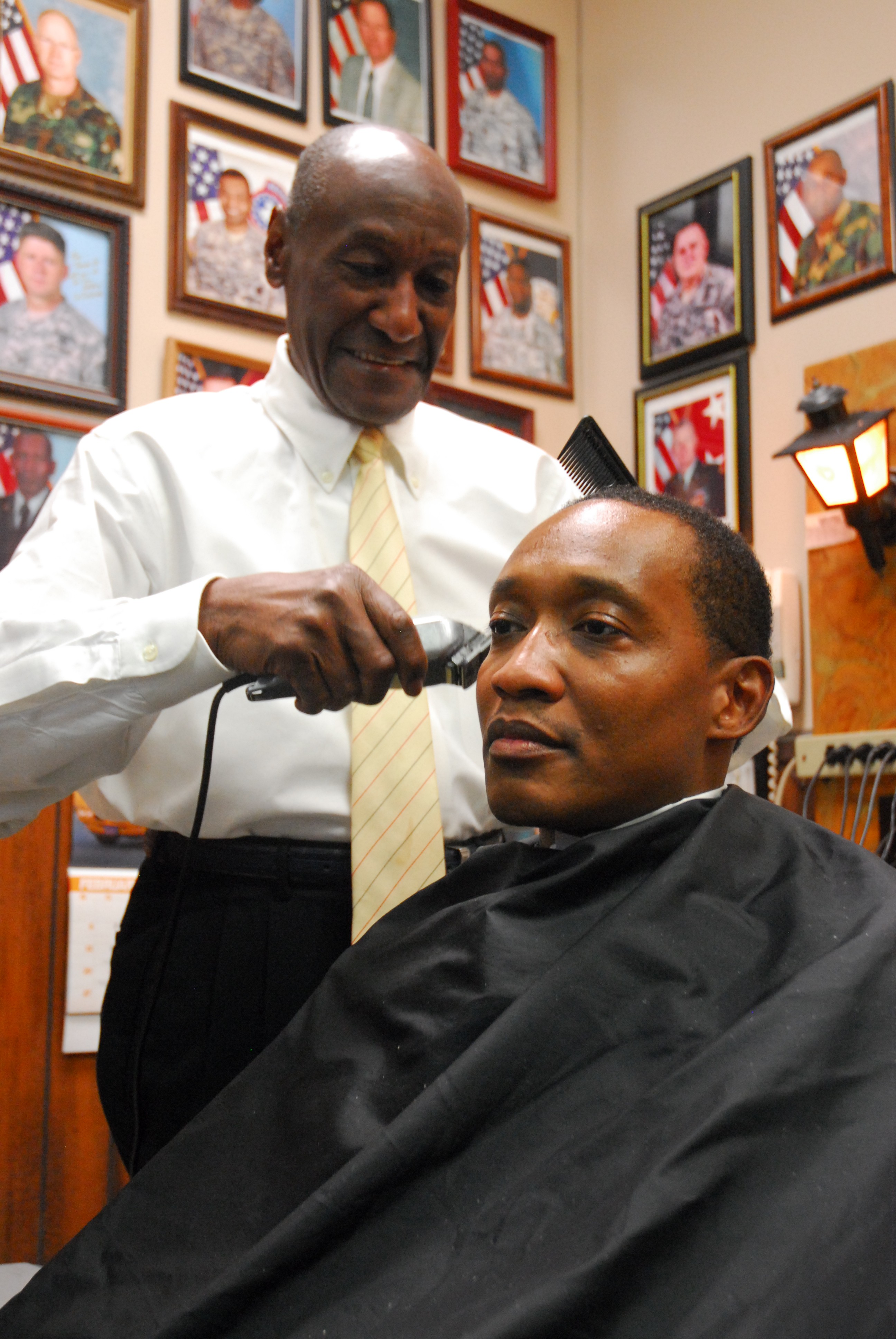
FORT JACKSON, S.C. -- the nearly half-century he has cut hair at Fort Jackson. From racial segregation to providing one last trim to a Soldier on his way to Vietnam, the legendary barber has left his impression on the installation.
Mack, who came to Fort Jackson in 1962 as one of two black barbers at the time, will retire April 30.
"It is just time for a change. It is not that I am tired. I have been in this profession for 49 years, and I am ready to move on," he said. "But I know I will miss coming here to see my friends and all of the people who come from all over the world. Fort Jackson means everything to me."
The native Columbian got his start cutting hair at Fort Jackson shortly after graduating from Patterson Barber College, a local barber school.
"There were 14 barbers and two of us were black," Mack said of his first job on post. "We could only cut black Soldiers' hair. That hurt us in the pocket because we worked on commission and the white barbers cut three times as many heads as us. It was hard to make any money."
It wasn't until the Vietnam era that Mack would be allowed to cut white Soldiers' hair.
Despite segregation and racial attitudes, Mack prospered and moved to new barbershops as they were opened on the installation.
"Back then haircuts were just 55 cents," he said. "We would get really busy around 6 p.m. when the Soldiers came in from training. We would have a whole company come in with 250 men."
He opened the first brick barbershop in 1966 at the 3rd Training Brigade, which at the time taught a 16-hour survival course for Soldiers about to be deployed to Vietnam.
The 3rd Training Brigade was located in today's "Rolling Pin" barracks on Magruder Avenue that is home to the 369th Adjutant General Battalion.
The most challenging period at Fort Jackson for Mack was during the Vietnam War, when he worked long hours and met countless Soldiers.
"We worked until midnight some nights. A first sergeant would call in late and tell us his troops were returning from the field and needed haircuts before being shipped off to Vietnam," he said. "They would leave my chair and head off to war. It was sad to see these young boys leave home and not know if they would ever come back."
Mack, who noticed a positive change in race relations at Fort Jackson during the Vietnam War, went on to cut hair at the Officers' Club, and in 1983, he opened his own barbershop at the Main PX, which he later sold.
"When I first came to Fort Jackson there were no black sergeants major or first sergeants. There was one E7," Mack said. "But the change of attitudes concerning race came during the Vietnam War. It brought everyone together.
"It is a lot different today than when I first came on post," he said. "I am very proud to see so many black senior NCOs."
For the past several years he has operated the NCO Club Barbershop, which is the last shop on post still contracted and owned by the Army instead of a civilian contractor.
"They taught me more than how to give a haircut when I was at barber college," he said. "They taught us how to manage money and invest in the stock market."
These days, Mack cuts the hair of generals, officers, NCOs and anyone else looking for a nice trim.
"He is always upbeat and has a positive word to say," said Master Sgt. Chanley Pickard, Equal Opportunity Staff Office chief. "Even though he cuts generals' and officers' hair, he treats every customer the same."
Mack, who plans to take it easy and enjoy life with his wife and grandchildren, will hand over the NCO Club Barbershop to his employee, Adarryl Gilmore.
"Mack is an inspiration and a living history on the topic of barbering," Gilmore said. "His shoes are very big to fill but I am going to do my best to get my foot halfway in his shoe."
Although Mack is a civilian and never served in the armed forces, he said there is a deep connection between himself and the Army.
"I feel like I have been in the Army and served my time," he said. "And I wouldn't have exchanged it for any job in the world."

Social Sharing